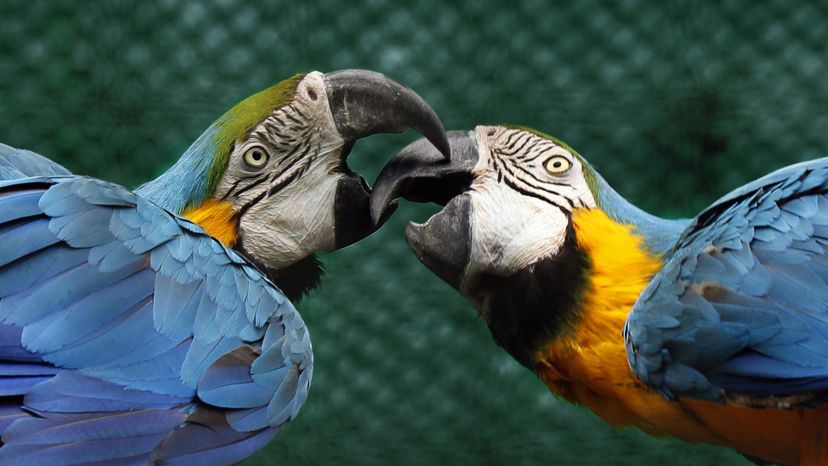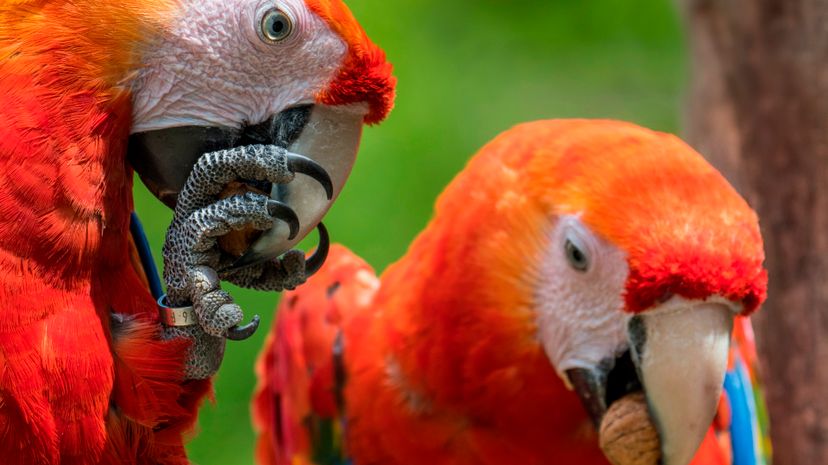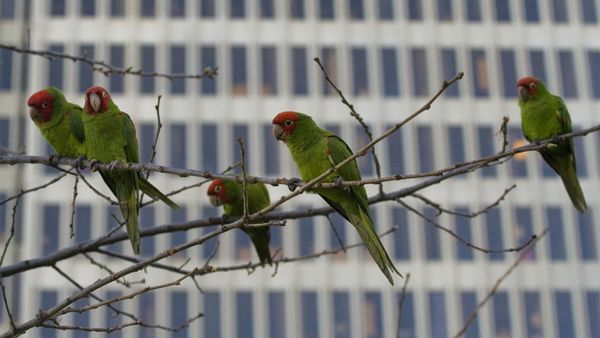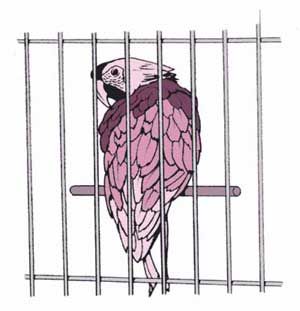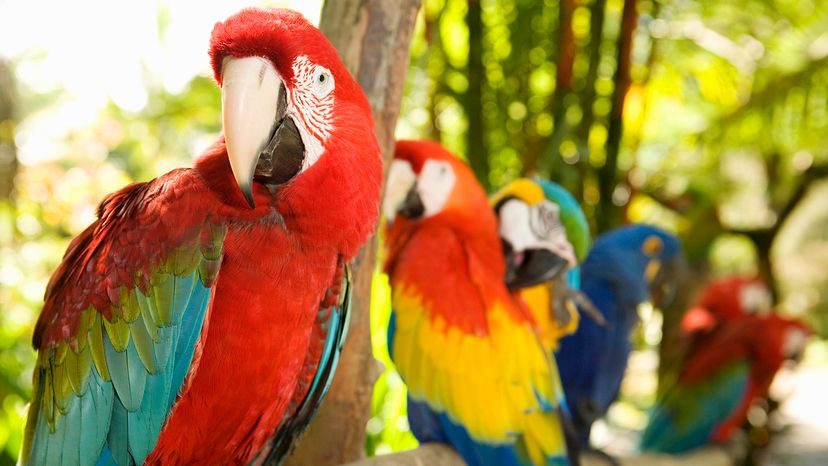
Key Takeaways
- Macaws are large, colorful parrots from Central and South American rainforests, known for their intelligence, social behavior and ability to mimic human speech.
- They form lifelong bonds with mates, share food and engage in mutual grooming.
- Macaws have powerful beaks for cracking nuts, eyes that change color as they age and complex emotional lives, including the ability to blush when they're excited or happy.
Macaw species are giants among birds, with wingspans reaching up to 4 feet (1.2 meters) and measuring up to 40 inches (101.6 cm) beak to tail.
These spectacularly colorful members of the parrot family, made up of 17 distinct species of birds — such as the red-shouldered macaw, the great green macaw and the blue-throated macaw — are from the rainforest regions of Central and South America. They're intelligent, curious and talkative companions that have been domesticated for centuries.
Advertisement
"Macaws can make wonderful pets in the right household," says Gregory Rich, D.V.M., an avian and exotic pet veterinarian and owner of a 24-year-old blue and yellow macaw, in an email interview. "Like many other pet birds, macaws are playful and seem to enjoy being trained to perform tricks like waving hello or using a skateboard."
Advertisement
